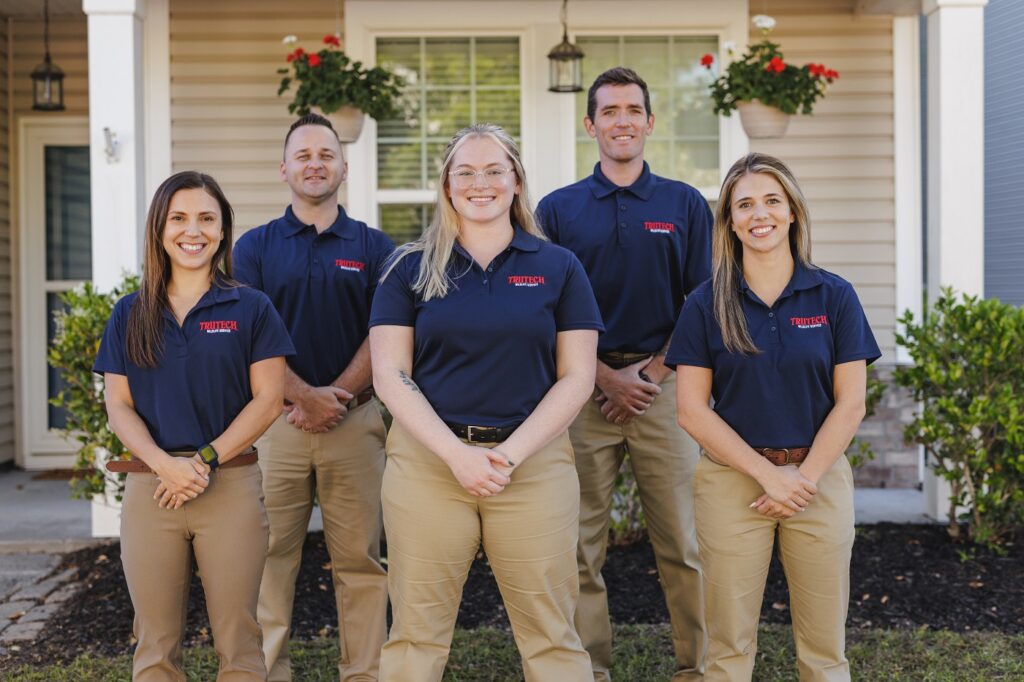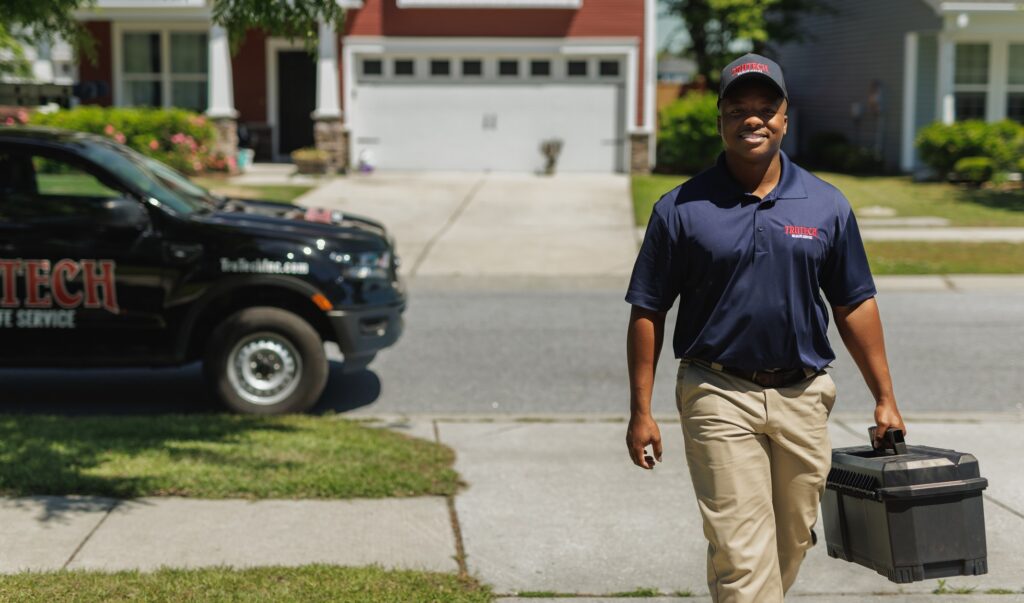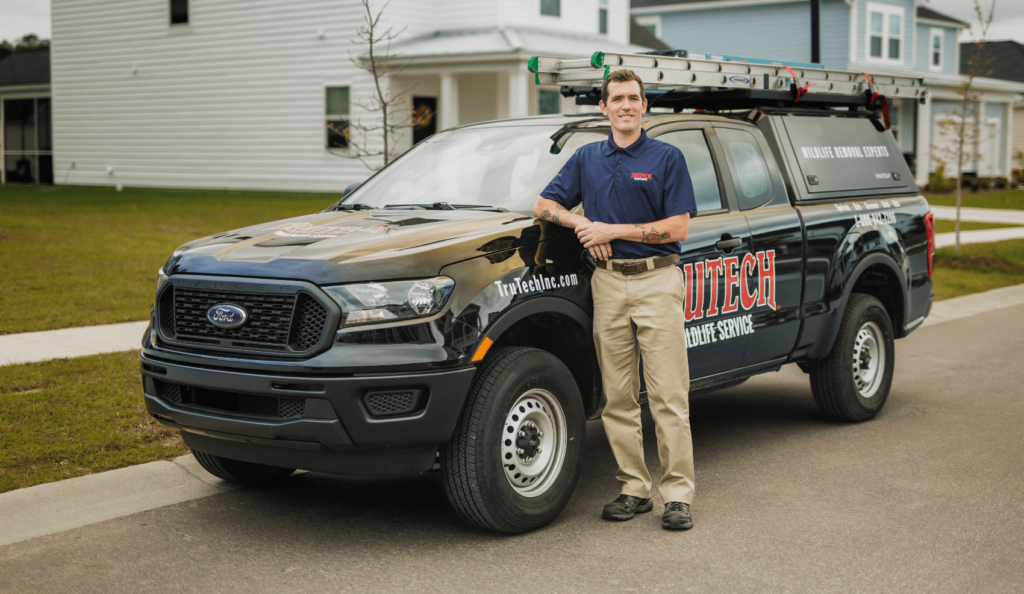If you have found a dead animal inside the house or on your property, you need to quickly and safely take care of it. Properly disposing of the animal carcass is essential for public health, environmental protection, and legal compliance.
I Found a Dead Animal, Now What?
Don’t Touch It!
Do not touch a carcass without proper PPE (personal protection equipment). Keep your pets, children, and anyone else away from the area.
Dead animals can harbor pathogens, parasites, and bacteria that pose serious health risks to humans and pets. Rabies, salmonella, E. coli, and various other zoonotic diseases can persist in carcasses, even after the animal has died. Furthermore, ticks, fleas, and other parasites may still be present and can transfer to you or your pets. Always assume the worst and maintain a safe distance.
Where is the Dead Animal Carcass?
efore you do anything, take a moment to assess the situation from a safe distance.
- What kind of animal is it?
- Is it a small squirrel, a medium-sized raccoon, or something larger like a deer?
- Where is it located – in your yard, on the sidewalk, or near a public thoroughfare?
Understanding these factors will help you determine the appropriate next steps and whether you need to involve local authorities immediately. A small bird might be handled differently from a potentially rabid fox.
Texas Regulation for Dead Animal Removal
Regulations are in place to prevent the spread of disease, deter scavengers that could bring further issues, and protect our ecosystems from contamination. These rules are designed to ensure responsible and sanitary disposal, safeguarding both human and animal populations. They’re a testament to our collective commitment to public safety.
Approved Methods for Carcass Disposal in Texas
In Texas, dead animal carcasses need to be disposed of within 24 hours. There are different guidelines for dead livestock and animal carcasses from hunting.
- Burial
- Composting
- Landfill (if allowed in the city)
- Rendering
- Incineration
What Cities Sanitation Departments in Texas Help with Dead Animal Removal?
Fort Worth, TX
The City’s Environmental Services Department’s Solid Waste Division is responsible for picking up and removing small dead animals from city streets, as well as from private property, once the animal has been placed in a plastic bag at the curb.
TXDOT handles the pickup and removal of dead animals on state highways.
Report a dead animal by calling 817-392-1234 or use this form.
Dallas, TX
Report to the City of Dallas 311 online form. Place the deceased animal in a plastic bag and relocate it to the front curb of your property for removal.
A $125 service fee will be applied to the Dallas Water Utility account number associated with the service address if the animal weighs more than 100 pounds.
Requests received Monday-Friday after 5PM, Saturday after 2:30PM, or Sunday after 1:30PM are resolved the next business day. The estimated response time for a service request of this nature is 1 business day.
San Antonio, TX
We collect dead animals, including domestic and wildlife animals, from City streets and residences. This free service is available every day but is subject to holiday changes.
Place animal in trash bag or box and leave it at the curb. Never put it in any of the three carts (brown, blue, or green)
Request collection online or by phone at 311 or 210-207-6000.
Arlington, TX
For residents of Plano, deceased wildlife within the city limits is removed at no charge. To request service, call the shelter at 972-769-4360, and an officer will be dispatched to your house or wherever the animal is located.
Animal services will pick up deceased pets, too.
Who Should I Call for a Dead Animal?
Dead animal on road
If you wish to report a dead animal (domesticated or wildlife) on the side of the road or on any public property, contact your municipal or county animal control.
Sick, injured, or dead wildlife
If you wish to report wildlife that are sick or dead of unknown causes, please email the Wildlife Health Team at [email protected]. If you need immediate assistance please call Wildlife Alert Hotline at 1-888-404-FWCC (3922) or use the “FWC Wildlife Alert” app.
Dead animal in house
If you believe an animal like a raccoon, squirrel, bat, opossum, rodent or any type of wildlife is dead inside your house, call Trutech Wildlife Service.
If your pet has died, please contact your veterinary office.
How to Dipose of Small Carcasses in Your Backyard
Bury a Small Carcass
For very small animals like birds, squirrels, or mice that you find on your private property, you can dispose of the animal on your property by burying it.
- Dig a hole at least 2-3 feet deep to prevent other animals from digging it up.
- Choose a location away from water sources (wells, streams, ponds) and utility lines.
- (Recommended) Sprinkle a layer of lime over the carcass before covering it with soil to aid decomposition and deter scavengers.
Will the Sanitation Department Take Care of It?
Some municipalities allow for the disposal of very small, non-diseased animals (again, like a mouse or small bird) in household trash, provided they are properly prepared.
This typically involves double-bagging the carcass in sturdy, leak-proof plastic bags to contain odors and prevent leakage. Place it in your outdoor trash bin just before collection day. This method is generally not suitable for animals larger than a small rabbit or if there’s any suspicion of disease.
Before attempting this, check with your local waste management or health department for their specific guidelines. Don’t assume; verify.
Professional Dead Wildlife Removal Near You
Finding a dead deer, coyote, fox, or even a large raccoon on your property means it’s time to call in the professionals. These animals pose significant health risks, and their disposal requires specialized equipment and knowledge. Your local animal control, state wildlife agency, or sometimes even a private waste removal service specializing in animal carcasses will be the one who needs to be contacted.






